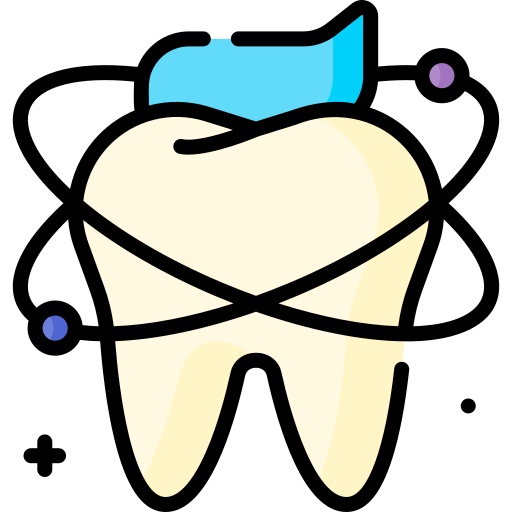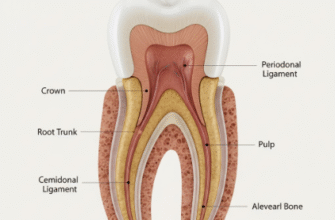It’s a common understanding that stress messes with our minds, our sleep, and maybe even our digestion. But have you ever considered what that mounting pressure, those deadlines, or that emotional turmoil might be doing to your teeth and gums? It’s a connection many people overlook, yet the intricate ways stress can impact oral health are quite significant. When life throws its curveballs, our bodies often react in ways we don’t immediately notice, and our mouths are surprisingly susceptible to these internal battles.
The Unseen Grind: Bruxism’s Toll
One of the most prevalent dental issues linked to stress is bruxism, which is the technical term for teeth grinding or clenching. For many, this happens unconsciously, especially during sleep. Think about it: when you’re tense, your muscles tighten – your shoulders, your neck, and yes, your jaw muscles too. This clenching can exert tremendous force on your teeth, far more than you’d use for normal chewing.
You might wake up with a dull headache, a sore jaw, or even earache-like pain, and not immediately connect it to what your teeth were up to overnight. Other tell-tale signs can include teeth that look flatter or worn down over time, increased tooth sensitivity because the protective enamel layer is being eroded, or even tiny chips and fractures appearing on your teeth. In more severe cases, the constant pressure can lead to significant damage, potentially requiring restorative dental work. The muscles of your jaw, the temporomandibular joints (TMJ), can also become inflamed and painful due to this persistent, often subconscious, activity.
Listening to Your Jaw: What Might Help?
Becoming aware of daytime clenching is a first step. Sometimes, just noticing you’re doing it can help you consciously relax your jaw. For nighttime grinding, it’s trickier since you’re asleep. Many individuals find that dentists can identify signs of bruxism during routine check-ups. In some instances, a custom-fitted night guard or occlusal splint may be suggested by a dental professional. This device doesn’t stop the grinding instinct, but it provides a protective cushion between your upper and lower teeth, absorbing the force and preventing direct tooth-on-tooth wear. Stress reduction techniques, though not direct dental treatments, can also play a role in lessening the intensity or frequency of bruxism episodes for some people.
Gums Under Pressure: Stress and Periodontal Health
Your gums are another area where stress can quietly wreak havoc. When you’re chronically stressed, your body produces more of the hormone cortisol. Elevated cortisol levels can, over time, impair the immune system and promote inflammation throughout the body, including in your gums. This can make your gums more vulnerable to the bacteria that cause gingivitis (the early stage of gum disease) and periodontitis (a more advanced stage).
Furthermore, when people are overwhelmed, self-care routines, including meticulous oral hygiene, can sometimes fall by the wayside. Skipping brushing or flossing allows plaque – that sticky film of bacteria – to accumulate along the gumline. If your immune response is already compromised by stress, and your gums are inflamed, this bacterial onslaught can accelerate the progression of gum problems. Symptoms like red, swollen, tender, or bleeding gums shouldn’t be ignored, as they can be early warnings.
It’s important to remember that your oral health is intrinsically linked to your overall wellbeing. Noticeable changes in your gums, such as increased bleeding or sensitivity, especially during stressful periods, warrant attention. A dental professional can assess the situation and offer guidance. Don’t underestimate the signals your body sends; proactive care is always beneficial.
The Dry Spell: Stress-Induced Xerostomia
Ever notice your mouth feeling particularly dry when you’re anxious or under significant pressure? This isn’t just your imagination. Stress can directly affect salivary gland function, leading to a condition known as xerostomia, or dry mouth. Saliva is your mouth’s unsung hero; it helps to neutralize acids produced by bacteria, wash away food particles, and provides enzymes that aid in digestion and fight infection. It also keeps the oral tissues lubricated and comfortable.
When saliva flow is reduced, the mouth’s natural defense mechanisms are weakened. This creates a more favorable environment for cavity-causing bacteria to thrive. Consequently, individuals experiencing chronic dry mouth, whether due to stress or medications sometimes used to manage stress-related conditions, may find themselves at a higher risk for tooth decay. Bad breath (halitosis) can also become more persistent, and simply feeling comfortable speaking or swallowing can be a challenge.
Mouth Sores: Unwelcome Visitors Triggered by Strain
Those painful little ulcers that appear inside your mouth, known as canker sores (aphthous ulcers), can also have a stress connection. While their exact cause isn’t fully understood, stress is a well-recognized trigger for many sufferers. It’s thought that periods of high stress can dampen the immune system, making it easier for these sores to develop.
Similarly, cold sores, which are caused by the herpes simplex virus, often flare up when an individual is stressed or run down. The virus lies dormant in the nerve cells, and stress can be one of the factors that reactivates it, leading to those familiar blisters typically around the lips. While not directly a tooth issue, their presence in and around the mouth is certainly an uncomfortable oral manifestation linked to systemic stress.
Stress Eating and Its Impact on Your Enamel
When stress levels rise, dietary habits often change. Many people reach for “comfort foods,” which, unfortunately, tend to be high in sugar, refined carbohydrates, or acidity. Think sugary snacks, sodas, or even an increased intake of coffee or acidic fruit juices. These choices can have a direct, negative impact on your tooth enamel.
Sugars are feasted upon by bacteria in your mouth, which then produce acids as a byproduct. Acidic foods and drinks, on the other hand, directly attack the enamel. Each “acid attack” can temporarily soften the enamel. If these exposures are frequent, as they might be during prolonged periods of stress-eating or sipping on sugary/acidic beverages throughout the day, the enamel doesn’t have enough time to remineralize (harden) properly. This continuous assault can lead to enamel erosion and an increased susceptibility to cavities.
Jaw Ache and Beyond: When Stress Tightens the TMJ
The temporomandibular joints (TMJ) are the complex hinges that connect your jawbone to your skull. As mentioned with bruxism, stress-induced muscle tension, clenching, and grinding can put considerable strain on these joints and the surrounding muscles. This can lead to a range of issues collectively known as temporomandibular disorders (TMDs).
Symptoms of TMD can vary widely but often include pain or tenderness in the jaw, face, neck, and shoulders; difficulty or pain when chewing, speaking, or opening the mouth wide; clicking, popping, or grating sounds in the jaw joint when opening or closing the mouth; and even a feeling of the jaw getting “stuck” or “locked.” Headaches, particularly tension headaches, are also commonly associated with TMDs exacerbated by stress.
Protecting Your Smile During Tough Times
Understanding how stress can affect your teeth and gums is the first step towards mitigating these effects. While eliminating stress entirely is often unrealistic, adopting strategies to manage it can have positive ripple effects on your oral health. This might include practices like regular physical activity, mindfulness, meditation, or ensuring adequate sleep – whatever works for you to help decompress.
Crucially, maintaining a consistent oral hygiene routine, even when you feel overwhelmed, is paramount. Brushing thoroughly twice a day with fluoride toothpaste and flossing daily helps to remove plaque and reduce the risk of cavities and gum disease. Staying hydrated, preferably with water, can help combat dry mouth and rinse away food particles.
Finally, don’t skip your regular dental check-ups and cleanings. Your dental team can spot early signs of stress-related dental issues, like wear from grinding or the initial stages of gum inflammation, often before you’re even aware of them. They can offer personalized advice and interventions to help protect your teeth and gums, ensuring that while life might be stressful, your smile doesn’t have to bear the full brunt of it.








